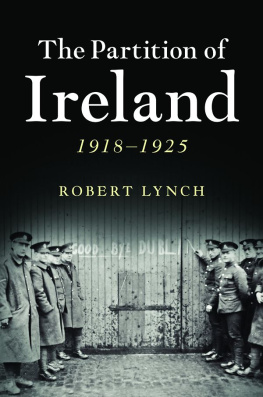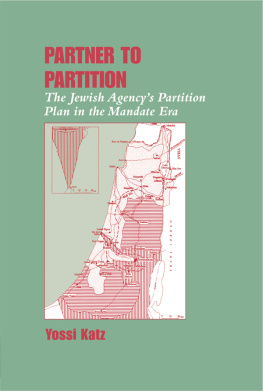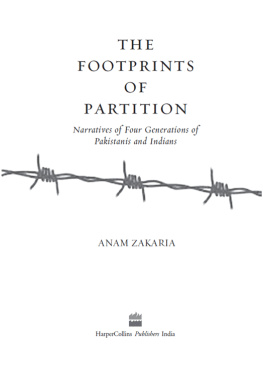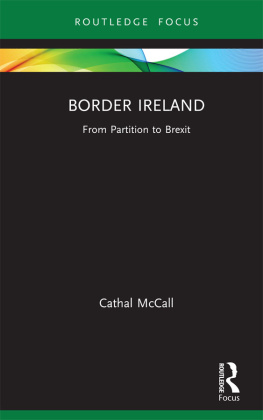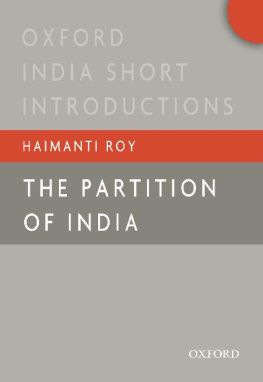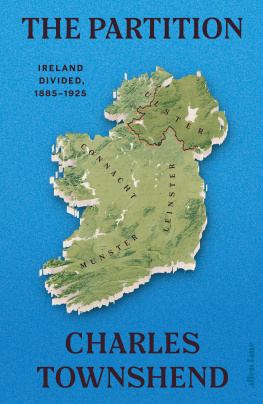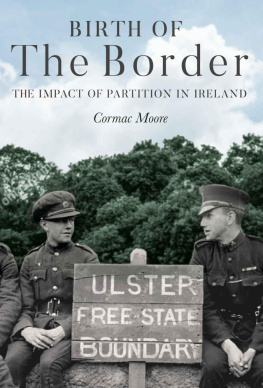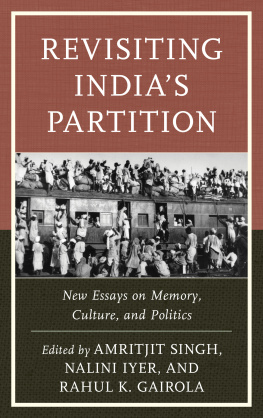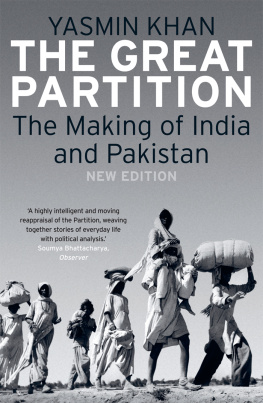THE PARTITION OF IRELAND
Partition represents the most fundamental revolution in modern Irish history. By 1925 the country had been divided into two states embodying rival religious and political identities, an outcome unthinkable only a decade before. While often analysed through the lens of elite high politics, partition was by definition a mass participation event, where decision-making was shaped by elections, propaganda and savage acts of violence in defence of, or in opposition to, the new settlement. By examining the complex interaction of nationalism, religion and politics, Robert Lynch seeks to understand how partition was constructed and imagined by Irish people themselves, arguing for a relocation of partition at the centre of historical understandings of events in Ireland which spanned the First World War. Lynch highlights the deep confusion and expediency which lay behind the partition plan, and how it failed to provide answers to the complex and enduring problems of Irish identity.
Robert Lynch has worked, taught and researched at the universities of Stirling, Oxford, Trinity College Dublin, Warwick and Queens University Belfast. He has published numerous articles and books on the early history of Northern Ireland and the partition era, including The Northern IRA and the Early Years of Partition, 19201922 (2006) and most recently contributing to The Irish Revolution (2017). He has also published a number of articles in journals such as the Journal for British Studies and Irish Historical Studies .
THE PARTITION OF IRELAND 19181925
Robert Lynch


University Printing House, Cambridge CB2 8BS, United Kingdom One Liberty Plaza, 20th Floor, New York, NY 10006, USA 477 Williamstown Road, Port Melbourne, VIC 3207, Australia 314321, 3rd Floor, Plot 3, Splendor Forum, Jasola District Centre, New Delhi 110025, India 79 Anson Road, #0604/06, Singapore 079906 Cambridge University Press is part of the University of Cambridge. It furthers the Universitys mission by disseminating knowledge in the pursuit of education, learning, and research at the highest international levels of excellence. www.cambridge.org Information on this title: www.cambridge.org/9781107007734 DOI: 10.1017/9781139017619 Cambridge University Press 2019 This publication is in copyright. Subject to statutory exception and to the provisions of relevant collective licensing agreements, no reproduction of any part may take place without the written permission of Cambridge University Press. First published 2019 Printed in the United Kingdom by TJ International Ltd, Padstow Cornwall A catalogue record for this publication is available from the British Library. Library of Congress Cataloging-in-Publication Data Names: Lynch, Robert John, author. Title: The partition of Ireland 19181925 / Robert Lynch. Description: United Kingdom ; New York, NY : Cambridge University Press, [2019?] | Identifiers: LCCN 2018057272 | ISBN 9781107007734 Subjects: LCSH: Ireland History Partition, 1921. | Ireland History 19101921. | Ireland History 1922 Classification: LCC DA962 .L964 2019 | DDC 941.5082/1dc23 LC record available at https://lccn.loc.gov/2018057272 ISBN 978-1-107-00773-4 Hardback ISBN 978-0-521-18958-3 Paperback Cambridge University Press has no responsibility for the persistence or accuracy of URLs for external or third-party internet websites referred to in this publication and does not guarantee that any content on such websites is, or will remain, accurate or appropriate.
For Michael Hopkinson, a dear friend, and a true gentleman
Contents
Chronology
| 1912 | 11 April | Third Home Rule bill introduced in the House of Commons |
| 28 September | Ulster s Solemn League and Covenant signed on Ulster Day |
| 1913 | 31 January | Ulster Volunteer Force (UVF) founded |
| 24 September | Ulster Unionist Council calls for the creation of the Ulster provisional government if the Home Rule is enacted |
| 25 November | Irish Volunteers founded at Rotunda in Dublin |
| 1914 | 20 March | Curragh mutiny |
| 24 April | Weapons landed at Larne to arm UVF |
| 25 May | Third Home Rule bill passed for third time by the House of Commons |
| 26 July | Weapons landed at Howth for Irish Volunteers |
| 15 September | Third Home Rule Act suspended for duration of the war pending an amendment for special treatment for Ulster |
| 1916 | 29 April | Easter Rising in Dublin |
| 1 July | 36th (Ulster) Division decimated on the first day of the Somme offensive |
| 23 December | Remaining internees released from Frongoch internment camp and Reading gaol |
| 1917 | 5 February | Count Plunkett wins by-election victory in North Roscommon |
| 16 June | Remaining prisoners released |
| 10 July | Eamon de Valera wins by-election in East Clare |
| 25 July | Irish Convention opens in Dublin |
| 26 October | De Valera elected president of Sinn Fin |
| 1918 | 9 April | Military Service bill introduced, clearing the way for the possible extension of conscription in Ireland |
| 18 April | Anti-conscription conference held in Dublin |
| 11 November | Armistice ends the First World War |
| 14 December | Sinn Fin wins seventy-three Irish seats in the general election |
| 1919 | 21 January | Dil ireann convened at Mansion House in Dublin |
| 1 April | Eamon de Valera elected president of Dil |
| 28 June | Treaty of Versailles signed |
| 1920 | 25 February | Government of Ireland Act introduced in the House of Commons |
| 4 April | Irish Republican Army (IRA) launches attacks on over 300 unoccupied Royal Irish Constabulary (RIC) barracks across Ireland |
| June | Sinn Fin and the nationalists make substantial gains in local elections following on from victories in urban elections in January |
| 21 July | Shipyard expulsions in Belfast lead to three days of rioting |
| 6 August | Dil instigate the Belfast Boycott |
| 1 November | Recruitment started for new Ulster Special Constabulary |
| 23 December | Government of Ireland Act becomes law |
| 1921 | 24 May | Unionists win substantial victory in elections to the new Northern Ireland parliament |
| 22 June | Northern Ireland parliament opened by King George V |
| 14 July | Sustained sectarian rioting in Belfast |
| 11 July | Truce implemented, ending War of Independence |
| 11 October | Anglo-Irish negotiations begin in London |
| 22 November | Security and policing powers transferred to the new Northern Ireland government |
| 6 December | Anglo-Irish Treaty signed |
| 1922 | 7 January | Dil approves the treaty |
| 21 January | First Craig Collins Pact |
| 12 February | Violence erupts in Belfast after IRA shootings along the border, leading to almost thirty deaths in three days |
| 30 March | Second Craig Collins Pact |
| 7 April | |
Next page
